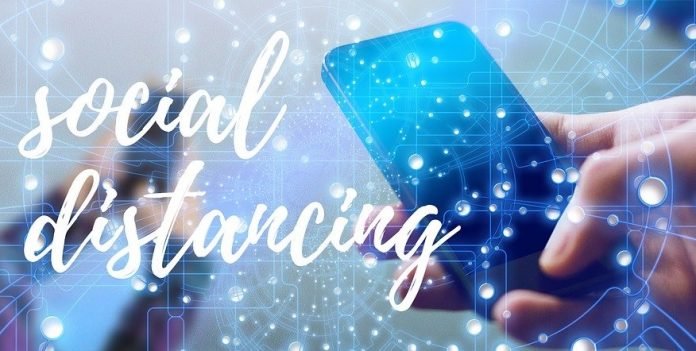
Humans are social creatures.
Our cerebral cortex, an area of the brain linked to social complexity, is three times larger than that of chimpanzees, the next closest primate.
Research has found that humans who lack social well-being face risks to their health, akin to smoking or lack of exercise.
Those who are socially isolated even feel less happy and die younger than their more social counterparts.
Yet, in the midst of the coronavirus pandemic, we now find ourselves isolated for a good cause. We are being asked to stay away from one another, cancel concerts, close restaurants, and delay weddings in the name of reducing death and suffering.
This kind of social isolation runs against human nature, said Prof. Nicholas Epley, a leading behavioral scientist at the University of Chicago Booth School of Business.
But just because we have to keep physical distance from one another doesn’t mean we have to stop being social, said Epley, the John Templeton Keller Professor of Behavioral Science and a Neubauer Family Faculty Fellow.
In an online talk in early April, he gave advice for how and why people should fight to be prosocial, even from afar.
Assume others want to hear from you
Epley’s research is supported by Chicago Booth’s Center for Decision Research, where he serves as faculty director.
In their experiments, Epley and his fellow researchers ask people to be social for science. Some studies were undertaken on trains, some in parks, some privately among close friends.
All of them point to a common misconception: People underestimate the positive effect that reaching out will have on others.
“People’s expectations were simply wrong,” Epley said.
His research has found that instead of experiencing the awkwardness they had anticipated, both sides of a social interaction actually feel better after it—each person feels happier, more connected. This effect has been replicated in multiple studies and holds true whether the people interacting are strangers, acquaintances, or loved ones, according to Epley’s research.
The Takeaway: Assume that reaching out to another person, even someone you don’t know well, will have a positive effect on both of you—especially when you’re physically apart.
“If we underestimate the positive effects (that instances of reaching out) can have on others, we might not do them,” Epley said. “That’s important now, when social connection isn’t as easy or automatic as it used to be.”
Instead of texting, make a call
In a yet-to-be-published study, Epley and his fellow researchers asked participants to reconnect with an old friend, randomly assigning them to reach out either through an email or a phone call.
First, the participants reported their expectations: Most believed that an email would produce less of a bond, but would also feel less awkward than a phone call. The majority said that they would prefer to skip the awkwardness of calling and simply send an email.
The researchers found that in spite of expectations, participants felt much more socially connected over a phone call. The study also found no difference in the awkwardness participants felt when emailing or making calls.
The takeaway: Have phone or video conversations—with friends, family, acquaintances—so that you can truly hear what the other person has to say. There’s more emotional nuance to spoken conversation than written communication, and Epley said this nuance will lead to a greater feeling of connection.
Ask deep questions
In a study conducted at Millennium Park in downtown Chicago, Epley’s team asked people to generate two sets of questions for strangers: One contained small-talk questions, while the other was filled with deeper, more personal questions.
Participants believed that asking deep questions would feel more awkward than asking small-talk questions. But when researchers randomly assigned participants to ask either the small-talk or deep questions, they found no difference in awkwardness.
Instead of causing them to feel awkward, deep questions made people feel happier and more connected to others. Examples Epley gave include:
- What are you most grateful for in life?
- If a crystal ball could tell you the truth about yourself, your life, or your future, what would you want to know?
- Can you describe a time you cried in front of another person?
The takeaway: Ask deep questions, even if the thought of asking them makes you feel funny. The funny feeling will give way to happiness and connection with another person.
Start today
Physical distancing doesn’t have to mean social alienation. Epley said that people can be prosocial even during the pandemic, and it will help them feel connected to others.
He suggested two habits that people can start working on today:
- Focus on gratitude: Someone in your life has done something meaningful for you and you’ve likely never expressed what it meant to you. Write that person a letter, text or email to say how grateful you are—or better yet, pick up the phone and call! Studies have found that this will make both people feel great, Epley said.
- Share kind thoughts: Every time you have a kind thought about someone, share it with that person. Give compliments and share nice memories. Epley said that this is another prosocial act that will make you both feel happier.
“Take these little steps, get started, and you’ll see how it feels,” Epley said, comparing pro-sociality to starting an exercise regime. “More often than not, once you get started, you’ll want to continue.”
Written by Hal Conick.



